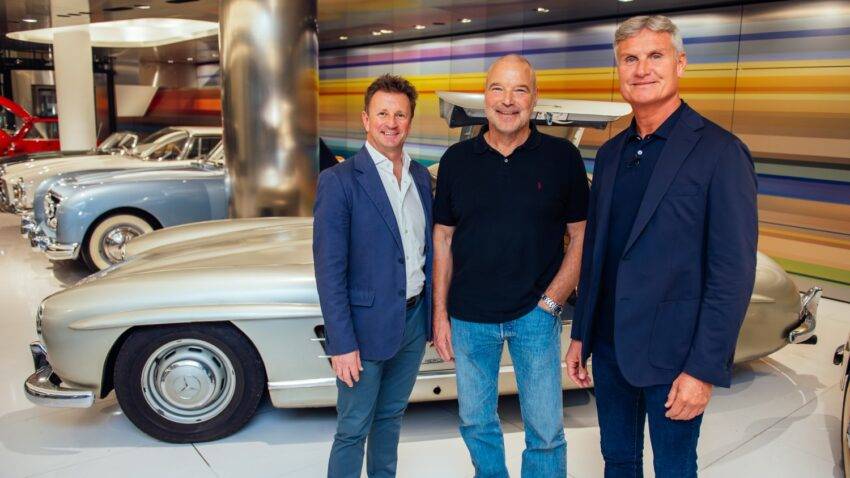Formula One stars Mika Hakkinen and David Coulthard have teamed up with a pair of entrepreneurs to launch a stock market business that allows the public to invest in ultra-rare classic cars.
The duo, along with the Le Mans endurance-race winner Allan McNish, have joined the board of a start-up that will this week fire the starting gun on a £50 million fundraising through the broker Oberon Capital to start building up its collection.
Tertre Rouge Assets — named after a famous bend at Le Mans — has secured six rare cars for £30 million, including a 1963 Jaguar E Type Lightweight, a 1960 Formula 1 Ferrari and a 1958 Mercedes-Benz 300 SL, to start the business.
The rest of the £50 million will be spent on buying other car-related businesses, starting with the supercar events company The Run To, which organises luxury driving rallies to the Monaco Grand Prix for wealthy petrolheads.
The idea was dreamt up by Tertre Rouge chairman Steven Schapera, a wealthy cosmetics entrepreneur, and chief executive André Ahrlé, a racing driver turned classic car investor, after the pair successfully co-invested in buying and selling classic motorbikes and cars.
Schapera, who does not even own a car, said he started working with Ahrlé simply as a way of spreading his investments after receiving a windfall from the €400 million sale of Invincible Brands, in which he was an investor.
“I really don’t know much about cars. For me, it was just about diversifying my portfolio. I wanted to put maybe 3 to 5 per cent of my wealth into alternative assets other than art, or wine or whatever, that are not correlated to the stock market. I met André and we ended up making a whole lot of money in classic cars and bikes.”
The problem, he said, was that cars and bikes are illiquid — meaning you cannot buy and sell them quickly. So they came up with the idea of creating a stock market company to trade vehicles in which investors could buy shares.
The group is targeting 15 per cent annual returns from the portfolio, on which it will make money by renting out the vehicles for photoshoots, as well as by selling them at a profit.
Ahrlé, whose first business was providing security services for stars including Bruce Springsteen and The Rolling Stones, got into racing when he won the speed challenges during a Mercedes-Benz course on driving for bodyguards. He went on to become a professional racing driver, winning the Daytona 24 hours race twice, before spending more time buying and selling rare classic cars.
“My first investment was in 1993, when I bought a Ferrari 1963 250 GT Lusso for 130,000 deutschmarks (£325,000). I sold it for $1 million (£800,000),” he recalled. His second investment was equally successful, but could have been far better: he bought a 1961 Competizione Ferrari 250 GT SWB Daytona race winner for 1.3 million Swiss francs (£1.2 million), then sold it for a 250 per cent profit. The car sold a few years later for $25 million.
Investment companies have in the past set up funds to buy classic cars, but they have struggled to raise a diversified investor base or car portfolio.
Fund profits can be reduced by the cost of storage, maintenance and insurance, although Schapera said that would be offset by revenues from renting out the cars for photoshoots and videos.
For investors looking at investing in up and coming classics cars the investment company Car Crowd who boast F1 broadcast host Natalie Pinkham and her Capital FM brother as ambassadors, and car aficionado Jodie Kidd as and investor, and part owner in two cars, the ability to but a share in a private company which exclusively owns a car believed to up-and-coming classic value wise with an agreed period of ownership and exit strategy.
The Knight Frank Luxury Investment Index for the second quarter of this year shows that cars outperformed art, jewellery and handbags over a ten-year period, with a return of 118 per cent against 109 per cent, 39 per cent and 60 per cent respectively. However, rare whisky bottles had the highest return with a 322 per cent gain.


